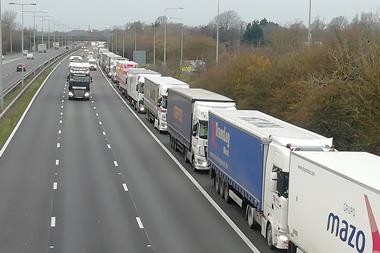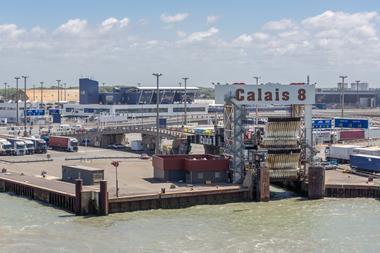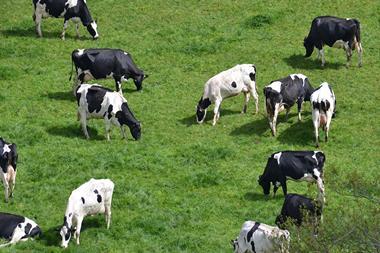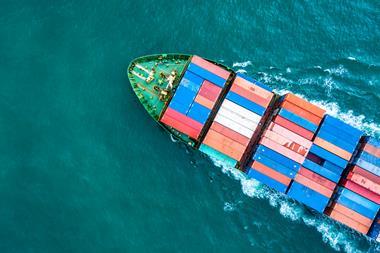
The UK and India have formally started negotiating a free trade deal that embattled prime minister Boris Johnson said “offers huge opportunities” for Britain’s “world-class businesses”.
Trade secretary Anne-Marie Trevelyan met India’s commerce and industry minister Piyush Goyal in Delhi to launch the talks. If successful, it could see bilateral trade hit £28bn by the middle of the next decade, according to the Department for International Trade.
In a joint India-UK statement, the two governments said their goal was to come up with a free trade agreement “that will deliver for businesses and consumers”. Such a deal “would be a substantial opportunity for both of our economies and a significant moment in the India-UK bilateral relationship”, they said.
Goyal said separately he “held a productive discussion” with Trevelyan about “enhanced market access, greater multilateral co-operation and full support to ongoing FTA negotiations”, the first round of which is to take place on Monday.
Talks are then scheduled to take place every five weeks. Though no deadline has been set to finalise a deal, late this year or early next have been mentioned by officials as possible end dates for talks.
Goyal posted on social media that India and the UK “have set aggressive timelines for a mutually beneficial deal that expands trade, opens new avenues of growth and creates employment”.
The finalisation in 2019 of the Regional Comprehensive Economic Partnership (RCEP), an Asia-Pacific deal described as the world’s biggest FTA, had been delayed for years over India’s reluctance to cut tariffs on imports, particularly from China. India in the end pulled out of the arrangement.
As part of a post-Brexit trade shake-up, the UK has agreed trade deals with Australia and New Zealand and has applied to join the Comprehensive and Progressive Agreement for Trans-Pacific Partnership (CPTPP), an 11-country trade pact.
According to Johnson, who was facing growing pressure to quit this week over apparent breaches of his own government’s coronavirus restrictions, the prospect of a deal with India indicated the UK was “seizing the opportunities offered in growing economies of the Indo-Pacific to cement our place on the global stage and deliver jobs and growth at home”.
Whisky opportunity
Johnson listed scotch whisky among the sectors he said could benefit from any agreement with India, which since independence in 1947 has largely run a protectionist trade policy.
Last year the regional administration in the Indian state of Maharashtra, which is home to almost twice as many people as the UK, cut excise duty on imported scotch by 50%. The move was welcomed by the Scotch Whisky Association, which said it was “campaigning to reduce the 150% federal tariff on imported scotch whisky, which the UK government has made a top priority in upcoming trade talks with Indian authorities”.
Trevelyan said that by 2050, India was likely to be the world’s third-biggest economy and home to “250 million shoppers”, making it a possible “huge new market for our great British producers and manufacturers across numerous industries from food and drink to services and automotive”.
Farmers’ groups have said the Australia and New Zealand deals could see British growers and producers forced to compete with counterparts in sectors where production and safety standards differ.
While Australia and New Zealand have long been export powerhouses, selling farm and food goods to much-larger population nations in Asia, India’s agriculture and food sectors are largely geared toward the country’s huge domestic market.
According to the DIT’s “Strategic Approach” blueprint for the India negotiations, the UK would be “committed to upholding our high environmental, labour, food safety and animal welfare standards in our trade agreement with India” while “not compromising on our high environmental protection, animal welfare and food standards”.
The department also said “there are other parts of the economy where activity may be reduced in the face of import competition and pressure to use resources for activities which are more competitive”, listing “certain agriculture and food sectors, as well as the textile industry, and to a lesser extent other manufacturing sectors”.


















